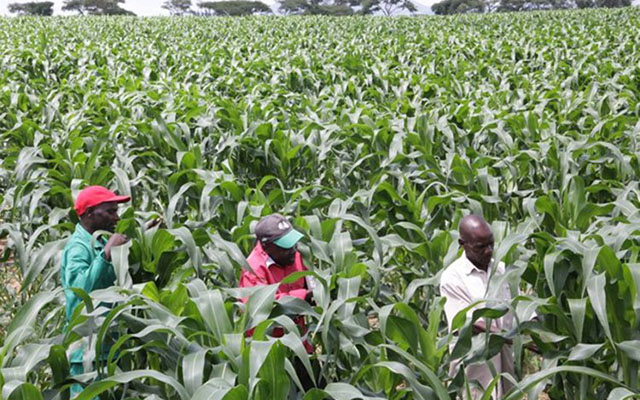Register for Command Agric, farmers urged

Obert Chifamba Eastern Edition Bureau Chief
Farmers in Manicaland have been urged to register for Command Agriculture and start serious preparations for the 2017 /2018 farming season without delay.
Acting Manicaland provincial Agritex officer Mrs Philipa Rwambiwa said the farmers needed to be doing soil testing at the moment, so that they make the right choices when they buy fertilisers and seed varieties.
She said that would also help them guard against spending on inputs that may not be necessary, which ultimately becomes an extra cost.
“I understand that most farmers are still busy shelling maize, thanks to the abundant yields they scored last season, but they still need to realise that as they sell their grain to the Grain Marketing Board (GMB), they must put aside cash for inputs — the correct inputs for their different regions,” said Mrs Rwambiwa.
“Of late, there has been a problem of high grain moisture content that has seen GMB sending away some farmers to further dry their maize, but this too can be avoided with serious planning.”
Mrs Rwambiwa challenged farmers to team up and buy shellers that they could use from their homesteads to dry grain before taking it to the GMB.
She said GMB was not helping the situation by failing to investing in shellers, which farmers could use for a fee in the event that their maize was found to have unacceptable moisture levels.
The accepted grain moisture content is 12,5 percent.
If grain is stored with moisture content levels higher than this figure, there are very high chances of it getting spoilt.
Many farmers have ended up selling maize for a song to middlemen that later dry it to the required moisture levels and sell to GMB where they get more money.
Additionally, Mrs Rwambiwa challenged farmers to invest in building more granaries or storage facilities at their homes too, for easy and safe storage, as a way of staying food secure even after selling surplus to GMB.
Manicaland Province is set to record its biggest grain yield in decades this year, as it is expecting at least 270 000 tonnes of maize and 60 000 tonnes of an assortment of small grains, which will significantly change the food deficits pattern carved by consecutive seasons of poor crop production.
Most of the grain is still to be shelled and delivered to GMB, as most farmers reportedly used long-season varieties, the seven series type, which takes time to mature though giving very high yields.
It is also against this background that Mrs Rwambiwa warned farmers against procuring inputs at the last minute, as this would be a recipe of taking the wrong requirements.
She also warned farmers against storing untreated grain, as weevils can easily ruin the good yields either on the field or under storage conditions.
“There is also a high risk of farmers losing the crop to the rampant veld fires that are now very common during the dry seasons, while thefts can also prejudice them of potential revenue, so they need to be organised throughout the production process up to the point of marketing or storage,” said Mrs Rwambiwa.






Comments